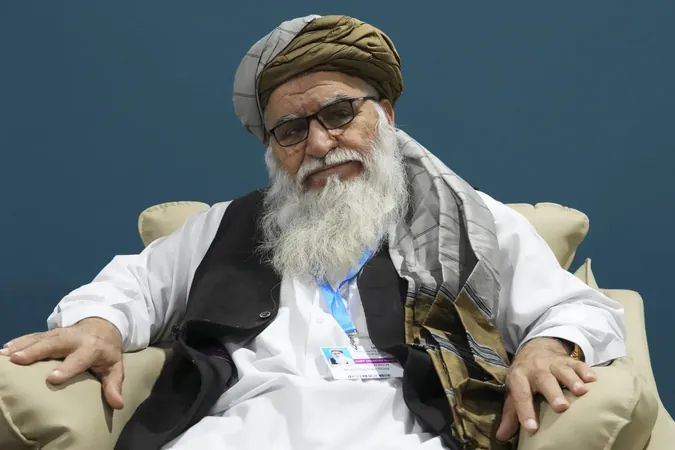
Afghanistan Makes Historic Appearance at UN Climate Talks Post-Taliban Takeover
2024-11-11
Author: Ming
In a significant step for climate diplomacy, Afghanistan has sent its first delegation to the United Nations climate talks since the Taliban regained power in 2021. The delegation arrived in Baku, Azerbaijan, on Monday, aiming to rally international support for climate action in a nation severely impacted by climate change.
Matuil Haq Khalis, the head of Afghanistan’s Environment Protection Agency, emphasized the urgency of the situation to The Associated Press, stating that Afghanistan is one of the most vulnerable nations globally, facing dire challenges such as erratic rainfall, extended droughts, and life-threatening flash floods.
"All countries must unite to address climate change," Khalis asserted through a translator, highlighting the need for a cooperative global effort to combat environmental degradation.
Recent assessments from climate experts have ranked Afghanistan as the sixth most climate-vulnerable country. In March, the country experienced severe flash floods triggered by heavy rains, resulting in over 300 fatalities. Alarmingly, climate scientists have reported that rainfall intensity has increased by 25% over the last 40 years in the region.
Khalis mentioned that Afghanistan has developed national action plans to tackle climate issues and detailed intentions to revise its climate goals in the coming months. He pointed out that the country possesses significant potential for renewable energy, particularly wind and solar power, but stressed the necessity for international collaboration to unlock this potential.
Acknowledging the vital role of international partnerships, Khalis expressed gratitude to the Azerbaijani government for their invitation to participate in the climate talks, although the Taliban's lack of official recognition limits Afghanistan’s diplomatic status to observer roles at the conference.
In addressing the UN's finding that women are disproportionately affected by climate change, Khalis stated, “The impacts of climate change transcend boundaries—it affects everyone, including women, children, and ecosystems. Therefore, it requires a collective response from all sectors of society to effectively combat this crisis.”
Looking ahead, Khalis indicated that he has requested bilateral discussions with several countries, including the United States, emphasizing the importance of dialogue in advancing Afghanistan's climate agenda. “We missed the last three conferences, but we are determined to share the Afghan perspective with the international community this time,” he said.
As the world grapples with the increasing effects of climate change, Afghanistan’s participation in these talks signals a critical opportunity for the nation to seek support and build alliances in the fight against environmental challenges that jeopardize the future of its people. This unprecedented involvement marks a pivotal moment for Afghanistan and fuels hope for actionable international solidarity against climate change.


 Brasil (PT)
Brasil (PT)
 Canada (EN)
Canada (EN)
 Chile (ES)
Chile (ES)
 España (ES)
España (ES)
 France (FR)
France (FR)
 Hong Kong (EN)
Hong Kong (EN)
 Italia (IT)
Italia (IT)
 日本 (JA)
日本 (JA)
 Magyarország (HU)
Magyarország (HU)
 Norge (NO)
Norge (NO)
 Polska (PL)
Polska (PL)
 Schweiz (DE)
Schweiz (DE)
 Singapore (EN)
Singapore (EN)
 Sverige (SV)
Sverige (SV)
 Suomi (FI)
Suomi (FI)
 Türkiye (TR)
Türkiye (TR)